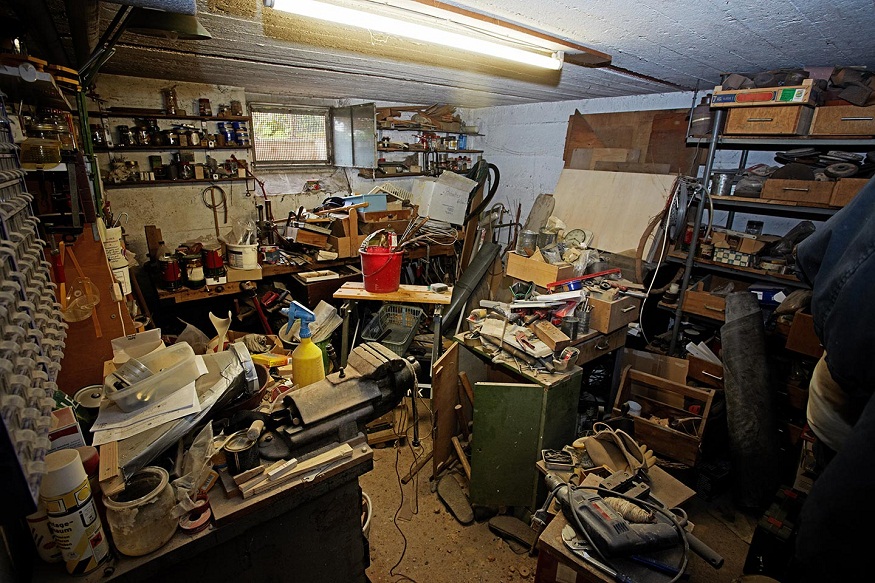For anyone living or working in South Florida—from Miami-Dade up through Broward and Palm Beach counties—dealing with trash, construction debris, and large unwanted items is a constant reality. We rely on public dumps and landfills to manage the huge volume of waste generated by our busy communities. However, these facilities aren’t simply free-for-all drop-off points. They operate under strict rules, and these rules often affect small businesses differently than they affect large corporations.
This article will break down the essential rules for using South Florida’s public disposal sites, examine why some smaller businesses feel they are being squeezed out, and explain the difference between a dump and a landfill.
Note: Estate Cleanout Services: junk removal boca ratonflorida – Do you need your parents home cleanout of all furniture, junk and trash. ECS is the right company for you.
Dumps vs. Landfills: What’s the Difference?
When people talk about taking trash to the “dump,” they are usually referring to a modern landfill. Historically, a dump was just a big hole where people tossed garbage, often leading to pollution and health issues. Today, that practice is illegal.
A modern sanitary landfill is a highly engineered facility designed to protect the environment.1 Key features include:
- Lining: Landfills have layers of plastic and clay lining the bottom to prevent harmful liquids (called leachate) from leaking into the groundwater.2
- Gas Collection: They have systems to capture methane gas (created as the waste decomposes) which can often be used to generate electricity.3
- Tipping: Waste is spread out in thin layers, compacted by heavy machinery, and covered with a layer of soil or other materials every day.
In South Florida, facilities are managed by counties (like Broward County Solid Waste) or private companies that operate under strict governmental rules. The rules for what you can drop off are centered on safety, environmental protection, and fairness.
Note: Need fast and reliable ac repair davie residents trust? Call City ACS inDavie Florida today for expert service, affordable rates, and same-day solutions to keep your home cool and comfortable!
The Rules of Dumping: What You Need to Know
Whether you’re a homeowner clearing out a garage or a small contractor disposing of materials, the rules for dropping off waste are strict and mainly depend on two factors: who you are and what you’re dumping.
Rules for Homeowners
Most South Florida counties provide easy access for residents to drop off household waste, yard waste, and large bulky items. These rules usually include:
- Proof of Residency: You must show a driver’s license and sometimes a utility bill to prove you live in that county. This ensures that the county’s taxpayers are the ones using the facility.
- Volume Limits: Homeowners often have a cap on how much they can dump per day or per year. This is intended for personal waste, not large commercial jobs.
- No Charge (Usually): Residents typically do not pay a tipping fee for regular household waste and recyclables, as the cost is covered by property taxes or a separate annual waste assessment.
Rules for Businesses (Including Small Contractors)
Businesses must follow a completely different set of rules because they generate waste as part of a commercial activity.
- Tipping Fees: Every business must pay a fee based on the weight of the material they are dumping. This is called the “tipping fee,” and it’s usually charged per ton. These fees are the primary way the facilities cover the high costs of running a modern landfill.
- Manifests and Tracking: Commercial vehicles must track and declare exactly what they are dumping. This is crucial for tracking potential hazardous materials and ensuring compliance with state and federal laws.
- Vehicle Requirements: Commercial vehicles must often use dedicated commercial lanes, and they may be subject to inspections to ensure loads are properly secured.
Rules on What NOT to Dump
The most important rule is the list of prohibited items. These items are banned because they are hazardous and cannot be processed in a standard landfill:
- Hazardous Waste: This includes chemicals, paints, solvents, pesticides, and poisons. These must be taken to special county-run Household Hazardous Waste (HHW) collection events or facilities.
- Tires: Due to their size and tendency to trap methane, tires are often banned or require a separate fee for specialized disposal.
- Electronics (E-Waste): Computers, TVs, and monitors contain lead and other toxic heavy metals and must be recycled at designated electronics recycling centers.4
- Medical Waste: Needles, sharps, and other biomedical waste require specific handling procedures.5
The Corporate Squeeze: Making it Tougher for Small Businesses
The waste management industry in South Florida, like many industries, is dominated by a few huge national and international corporations. Small, independent haulers and contractors often feel that these large companies, along with strict governmental regulations, make it unfairly difficult for them to operate.
Here are a few ways that waste management practices—driven by both large corporations and regulatory pressure—can create hurdles for small businesses:
1. High Tipping Fees and Minimums
When large waste corporations own or manage the local landfills, they control the tipping fees. While fees are necessary, sharp increases can wipe out the profit margin for a small, local contractor who only dumps a few times a week.
Sometimes, facilities also implement minimum charges for small loads. A big company that dumps 20 tons at once can easily meet a minimum, but a small contractor hauling just a few hundred pounds of construction debris must pay the same minimum fee, making their small job less profitable.
2. Complex Permitting and Regulations
Florida state and local governments require extensive paperwork, permitting, and reporting for commercial waste haulers.6 While these rules ensure proper environmental protection, they can be overwhelming and expensive for a single person or a small family-run business that doesn’t have a large legal or compliance department.
- The Burden of Compliance: A major corporation has staff whose only job is to fill out regulatory forms. A small contractor has to spend valuable time away from actual work just to handle paperwork, raising their operating costs.
3. Vertical Integration in the Industry
The term “vertical integration” means a single company controls multiple stages of the process.7 In waste management, this means one huge corporation might:
- Own the landfill.
- Own the fleet of trucks that collect the waste.
- Own the transfer stations (where waste is sorted).
When a corporation owns the landfill, they can give their own hauling divisions better rates or priority access. This makes it almost impossible for a smaller, independent hauling business to compete on price, as the independent hauler still has to pay the high tipping fee to the competitor who owns the landfill.
4. Pressure to Separate and Recycle
Modern environmental rules require waste to be separated into many categories (concrete, metal, wood, cardboard, etc.). This separation is great for the environment, but it requires small contractors to spend extra time and space sorting materials, which slows down their work.8 Large corporations can afford expensive, automated sorting facilities; small businesses rely on manual labor, making their process less efficient.
Note: We are a quality mortgage brokerage firm in South Florida that provides great, competitive rates with flexible types of loan packages. Need a mortgage lender boynton beach click here.
Conclusion
The facilities that manage South Florida’s waste—whether they are publicly run or privately managed landfills—are essential but operate under strict guidelines. For homeowners, the rules mostly involve proving residency and adhering to prohibitions on hazardous materials.
For small businesses, however, the playing field is getting harder. While environmental regulations are necessary, the high costs of tipping fees, complex compliance rules, and the dominance of large, vertically integrated corporations create a significant financial burden. To survive, small businesses must stay meticulously informed about local rules and always calculate the full cost of waste disposal—not just the project cost—before taking on any job. Understanding the differences in rules is not just about staying legal; it’s about staying competitive.

